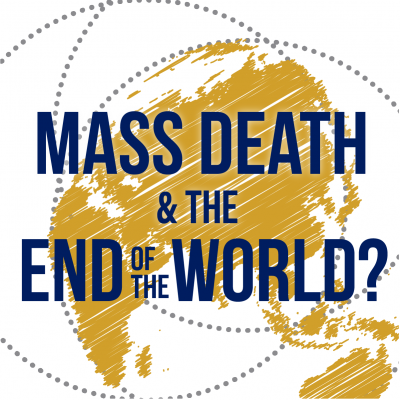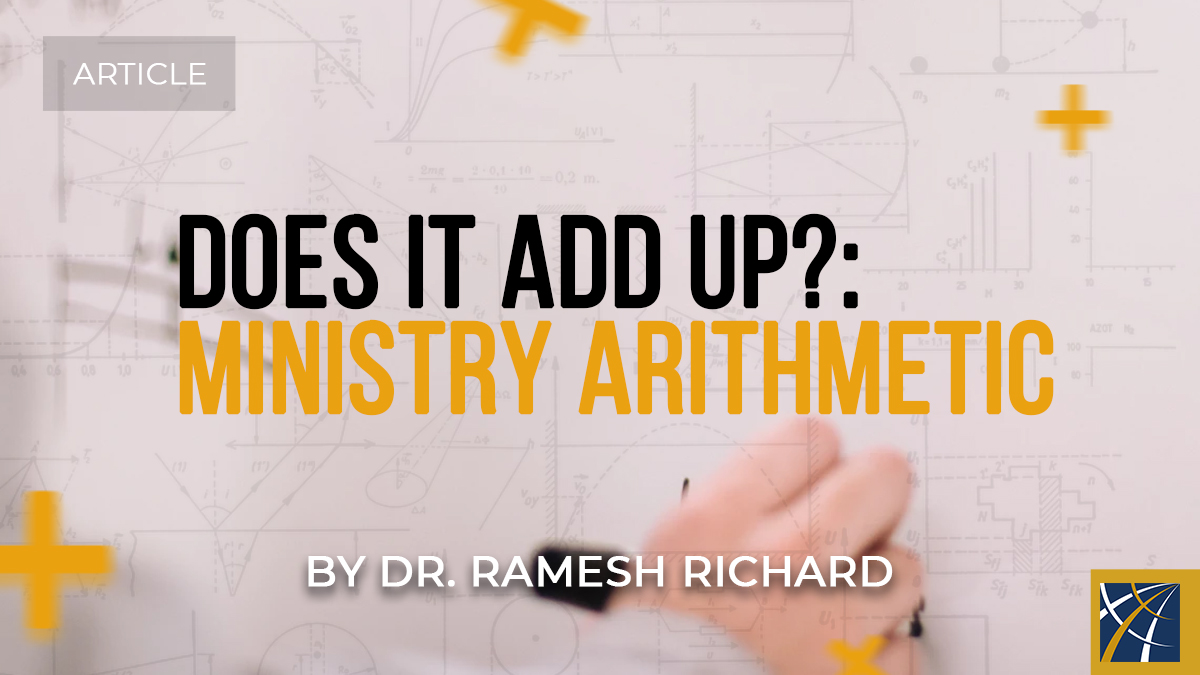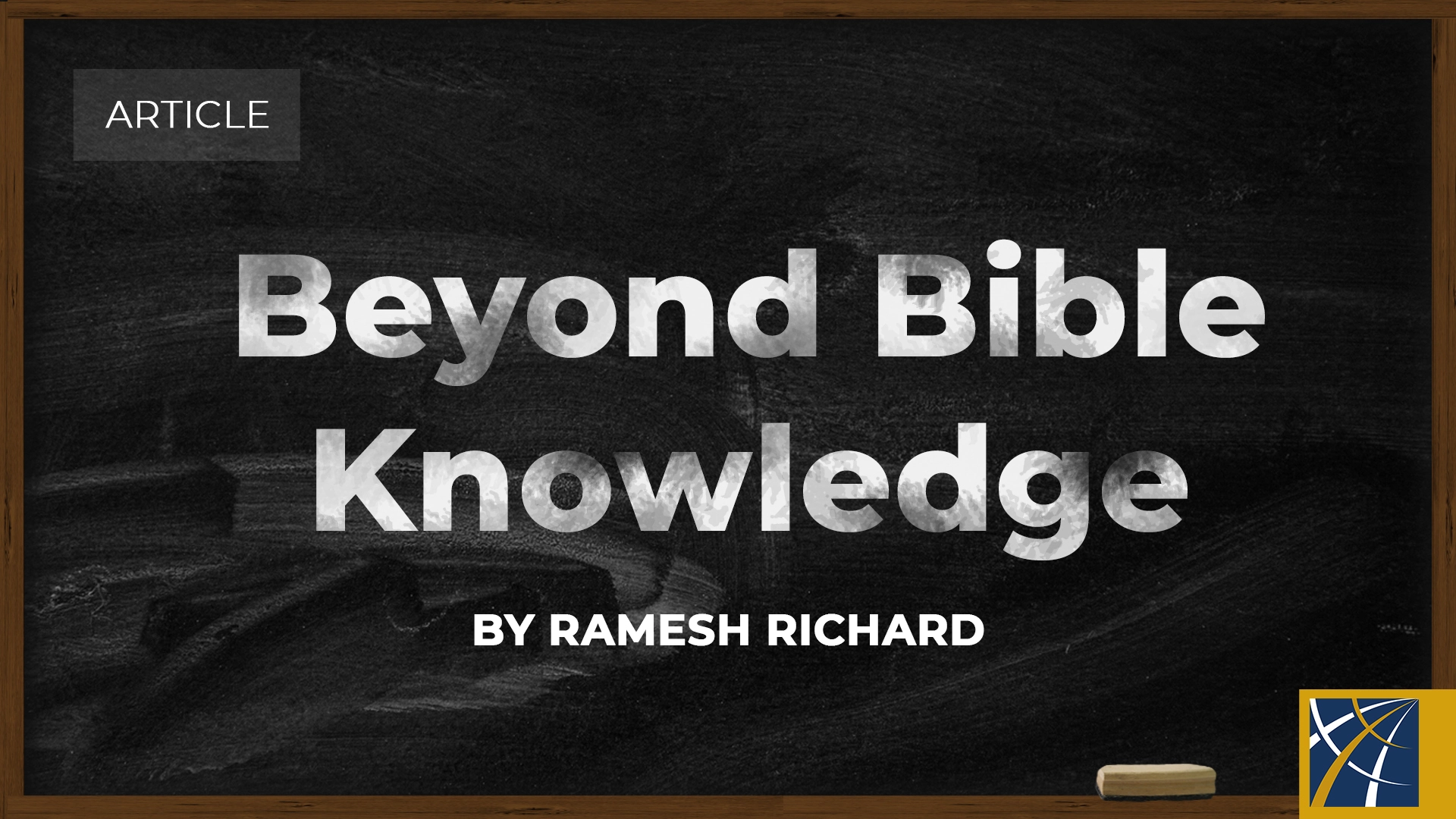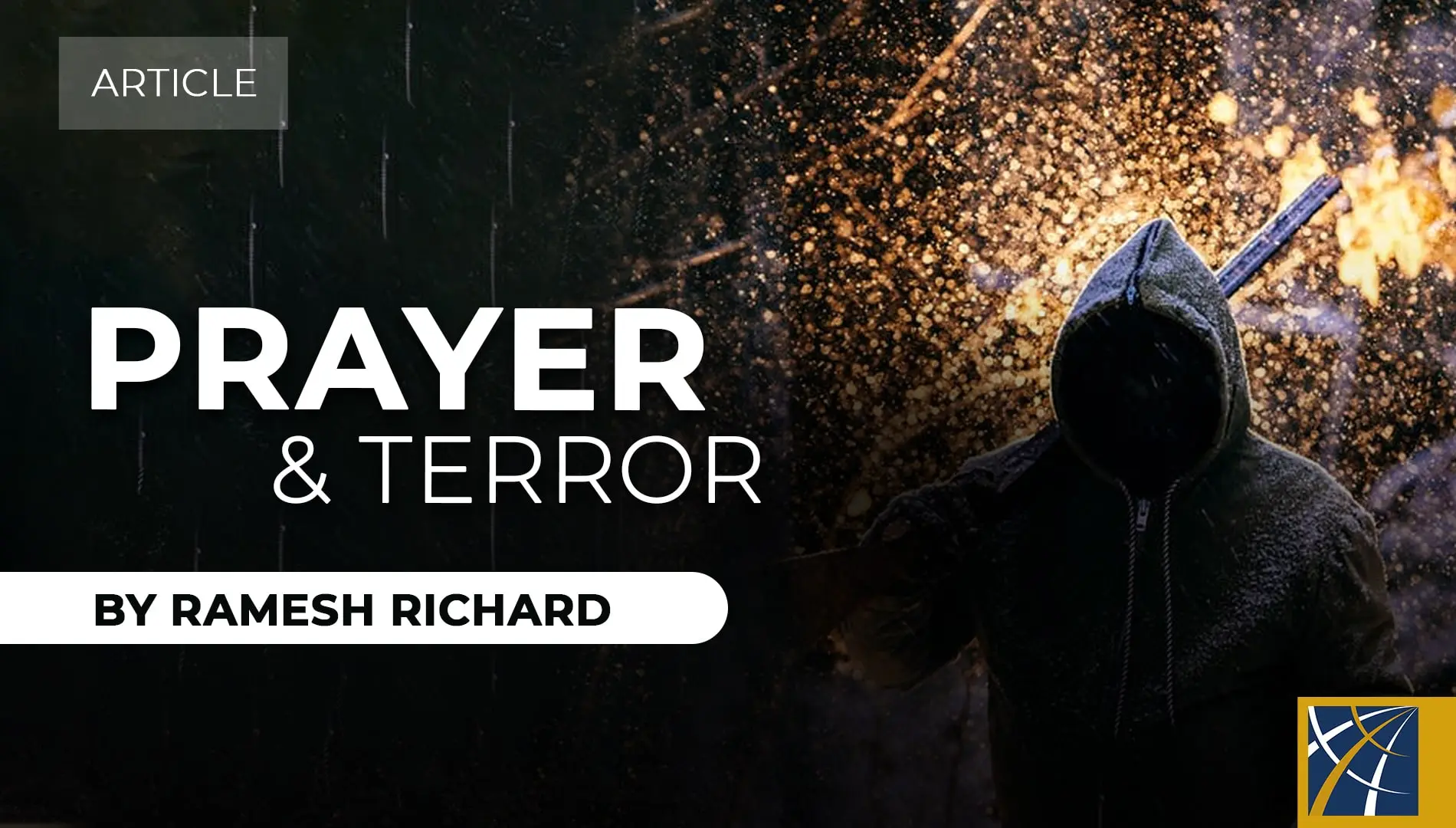 Mass Death and the End of the World
Mass Death and the End of the World
by Ramesh Richard
It feels like the end of the world. So we should get married now, read my news headline yesterday1. Alaa al-Taweel decided to go ahead with her marriage with the world falling apart in her country of Egypt as well. “‘I read a lot about the deteriorating situation in Italy, the number of total deaths every day, I was terrified,’ Taweel recalled. ‘I woke [my partner] up in the middle of night telling him, if the world is about to end, we have to hurry up to live some days together first, and he super agreed….’ So just a few days later, Taweel, 24, and her partner were engaged in a simple ceremony along the Nile River at sunset as a few friends and family stood appropriate distances from one another.”
That’s one way to handle a most prevalent question in the face of massive death: “Is the world coming to an end?” A fair question to ask during bad times, we must never neglect it even in the good times. For the world can come to an end any time, suddenly, as we have seen, or as it is, slowly.
In biblical conviction, the end of all things is at hand (I Pet. 4:7); the Lord’s coming is always near (Jas. 5:8). There is no real historical obstacle for the next major event in God’s running of human history, when Jesus will “snatch away” his living people to join those risen from the dead to meet the Lord in the air (I Thess. 4:17).
End-of-the-world scenarios have always haunted the human mind—one of the unique markers of our humanity is our awareness that the end will come, whether personal or global. However, specific predictions, current pandemic included, and date-setting are not encouraged in the Bible.
According to one interpretation of the Mayan earth-cycle, supposedly corroborated by a colorful Nostradamus prediction, Jesus was to come before December 21, 2012. That forecast failed. In 2011, a Christian radio speaker gained notoriety with consistently wrong calculations. Neither May 21 (his first date) nor October 21 (nice second try) were discernible in propelling the conclusion of history. He was verifiably wrong.
The argument Christians should not use however, to debunk specificity in date-setting is the declaration of Jesus that no one knows the day or hour (of His coming) except the Father (Matt. 24:36). That assertion relates to Jesus’ intentional, pre-resurrection limitations in some temporal details to be lifted soon after his resurrection. Right after the resurrection, the disciples asked, “Lord, is it at this time You are restoring the kingdom to Israel?” He said to them, “It is not for you to know times or epochs which the Father has fixed by His own authority” (Acts. 1:6-7). Here he doesn’t acknowledge his earlier limitation, just theirs!
His voluntary self-limitation during the incarnation reverted to pre-incarnate prowess in body (he traveled through locked doors, John 20:19) and mind (he did not deny knowing these times and epochs any more, Acts. 1:6-7). He knows the time; we do not. So we should not practice date-calculation.
Now, nothing should keep us from believing that the world will one day end. Peter noted that mockers will always ridicule the delay in Christ’s coming. Of course, Jesus delays his coming for all people to have a chance at repentance, including skeptics and mockers (2 Pet. 3:1, 9).
Further, whether the rapture happened May 21/October 21, 2011, or December 21, 2012, is quite easily verifiable (and again falsifiable).
Here’s the final reason you want to listen to Jesus concerning end-of-the-world scenarios. Several times during his tenure on the earth, he said he would die and be raised the third day (Matt. 17:22-23; 20:18-19; 1 Cor. 15:3-5). That third-day resurrection was easily verifiable (and falsifiable). Since he predicted that he would raise himself the third day and did, you should seriously consider his view of personal conclusion and global culmination.
What is it?
First, there is the end-of-the-world for each and every human being in death—the ugly and inevitable equalizer of humanity. The world mourns the fresh and gaping loss of COVID-19 stricken family, friends and colleagues. Leaders strive to minimize the devastation resulting from economic repercussions of quelling the virus’ spread. Jesus brings eternal life to every human being, a gift that provides God’s hope in the middle of loud tears and broken hearts. He also promises God’s life as beginning now—the present meaning of eternal life.
And there is the total end-of-the-world, as in all history. Jesus will either be personal eternal Savior now or Final Judge later of all people (John 5:25-27), including the predators taking advantage of the pandemic situation and violent killers at elementary schools, shopping malls and movie theaters. While you are not as heinous as these, you, too, need to survive past this life. And an eternal life that lasts past this life is what the Lord Jesus offers at this very appropriate moment for any who personally believe on Him as their only Savior.
Is it the end of the world? Let’s talk.





